Neuroplasticity, NLP and the power of our thoughts
Neuroplasticity
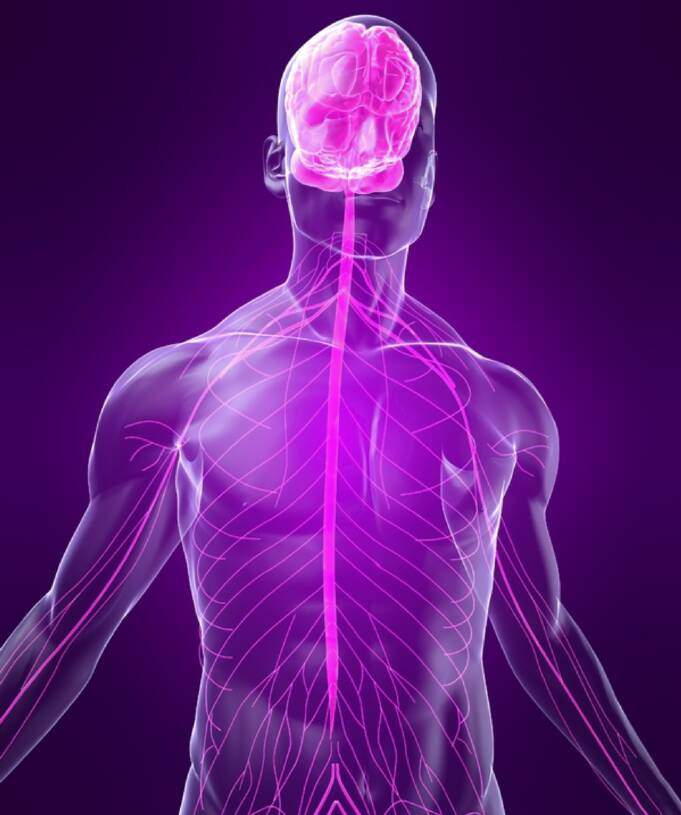 Research (including by Bruce Lipton) has shown that it is not genes that determine who we are but that our identity for 95% comes from unconscious patterns (neurological connections) in our brain. A lot of features of our behaviour are purely ingrained programming in the brain. They are neurological connections that are established throughout your life.
Research (including by Bruce Lipton) has shown that it is not genes that determine who we are but that our identity for 95% comes from unconscious patterns (neurological connections) in our brain. A lot of features of our behaviour are purely ingrained programming in the brain. They are neurological connections that are established throughout your life.
These neurological connections were formed most strongly in our first 6 years of life. Our brain then functions under very low frequencies so we absorb everything we see/experience/feel/observe etc. This largely determines our future identity.
People often hear you say that it is the genes they blame for who they are but this is only a very small part truth.
You can think of your brain as a computer that is slowly programmed on a daily basis. You can also call it habituation or patterns. These ingrained patterns (programming) in the brain are stored in our subconscious and are thus performed subconsciously. This is to avoid having to relearn everything every day. 95% of our actions stem from these unconscious patterns executed by the brain. 5% of our actions are conscious actions!
Research in recent years has shown that we can, however, change these patterns in our brain itself to create new neurological connections. This is due to the neuroplasticity of our brain. With neuroplasticity refers to the fact that our brain is neuroplastic and can therefore continuously make new neurological connections. This training of the brain is done with NLP (Neuro linguistic programming.
Helpful and unhelpful neurological connections
In daily life, these ingrained patterns can be either helpful or unhelpful. In the case of helpful patterns, you will feel nice and confident and stable. In the case of unhelpful patterns in the brain, you will not feel comfortable in certain circumstances because the brain has unconsciously taught itself to react in ways that you consciously may not like at all.
Like social anxiety, for example. Your brain then unconsciously reacts fearfully when it gets close to people. With NLP, you train your brain to react "normally" again in such a situation. After all, consciously you do know that your fear is unfounded. But as long as your unconscious still uses a negative pattern, you will continue to experience the fear and experience the same unpleasant complaints over and over again. This applies to many other complaints and disorders besides social anxiety. Usually, you experience these complaints because of a negative experience from your past.
But you don't want to be scarred by a negative experience in your past for the rest of your life with unpleasant symptoms that prevent you from feeling good, do you?
Character traits through neurological connections
Examples include: recurrent unpleasant feelings in certain activities or, on the contrary, enormous self-confidence. Fear of failure, gloominess, fatigue etc. etc. etc.
But also your behaviour. Do you react friendly or catty, are you enthusiastic or cool, confident or insecure etc. etc. etc.
And also, for example, your interest in things and what you like and don't like. There are thousands of other examples.
But by the neuroplasticity of the brain, you can exert a lot of influence on this yourself and make unhelpful patterns helpful, which will make you feel much better. You may now think that everything you experience and feel is like you are, but that is only partly true. Your genes only play a very small part in this.
NLP (neuro linguistic programming)
Through neuro linguistic programming (NLP), which uses the neuroplasticity of the brain, we can safely and completely naturally rewire our brain by adopting new beliefs and ideas.
With your own inner strength you have an incredible ability to change yourself positively, but also to heal yourself of annoying complaints, for instance. So you can exert a lot of influence yourself to feel much more comfortable and get the most out of your brain.
Neuroplasticity and mental disorders (brain trauma)
Many mental disorders are therefore trainable away from the brain by this neuroplasticity. They are fixed beliefs and patterns in the brain, which are then performed unconsciously by the brain every day. Many of these patterns are created as early as the first weeks a baby is born.
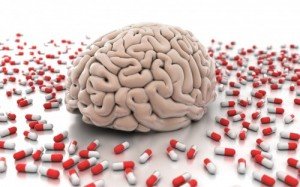
Many therapists and psychiatrists do not know about this neuroplasticity and immediately see deviant behaviour as a disorder and rather like to hand out labels for certain behaviour. This way, they know what medication can be given to suppress the complaints and symptoms. But they are not familiar, with our own power, to solve these problems ourselves because our brain is neuroplastic.
Not everything can just be painted away as a disorder. It is often an unhelpful pattern in the brain that has developed over the years during your development. Which makes you act the way you do. It cannot be called a disease or disorder. A better wording would be "brain trauma" Of course, it is not true that you can train away every disorder by using NLP, but a lot of complaints and limitations in people are purely negative ingrained patterns in the brain.
You may sometimes wonder, why does this happen every time. Why do I or someone else always react this way, why do I often fail, why am I often tired, why do I have social anxiety, why am I often so down, why am I the way I am, why do I sometimes have negative or unpleasant feelings about something, why do I have negative thoughts so often etc. etc. etc.
So this all has to do with how you were developed and the influences of your environment throughout your life. This has created these neurological connections in your brain that can affect your life very negatively and give you unpleasant feelings. This significantly affects your behaviour and feelings. You don't need to put labels on that but rather train yourself effectively to resolve it.
Helpful/successful neurology
Successful people with ADHD and ADD symptoms do not get the label in many cases but can often identify with the characteristics to a large extent. Fortunately, these people do not suffer because they found their calling. They have a positively developed brain with a lot of helpful neurology. This in turn ensures that the ADHD / ADD brain is maximised and you can start expressing its power. People will start to see you as an inspiring personality. Someone who can achieve many great and beautiful things. In my opinion, that is what AD(H)D´ers are made for on this planet.

Will Smith was diagnosed with ADHD in his younger years along with very many other well-known stars with ADD and ADHD characteristics. Despite this, he has achieved a lot. This is directly due to the development of a positive and powerful helpful brain.
People with the AD(H)D brain have special qualities and can create special things. But you have to start recognising this and you will have to stop focusing on your AD(H)D symptoms and unhelpful patterns in the brain, turn them into positive helpful patterns yourself. You have to make the choice whether to use your genius helpfully or unhelpfully.
This is exactly why some people with AD(H)D are incredibly successful and others live an existence of trying to survive day in and day out, need medication because otherwise they get stuck and keep changing jobs because they can't find their niche. Then you've lost touch with yourself and become entangled in unhelpful patterns and beliefs that can make your life enormously difficult. That's why you fall again and again!
Unhelpful/unsuccessful neurology
Unhelpful beliefs and patterns were usually formed at an early age. Possibly through the current school system where you just didn't fit in. Read more about this on the page Living with ADD/ADHD in society.
So these unhelpful beliefs and patterns can get in your way! This is a pity when you consider what people with the ADD/ADHD brain are capable of and that these patterns are actually simple to change with NLP.
We are made to achieve great things, we don't think small, we can change the world. We look for interesting things, for thrills, for things that allow our brain to connect with that huge wave of passion and creative energy hidden inside us. That is what calms us, our souls scream for more. Think again of the story of the eagle.
Neurological connections define your identity
Your thoughts and underlying beliefs literally create your own reality. It determines your position in this world and how you view and interact with things and people. This is called your identity but, therefore, you do have a say in this for the rest of your life.
 Because our brain is neuroplastic, we can influence ourselves by changing our beliefs and thoughts. A belief is actually nothing more than a certain pattern, created by thoughts about something and by certain experiences during the years of life. So, for example, that might make you afraid of something and another person not. But it could also be that you have beliefs about something that are not correct at all. Purely because your brain makes you think this is the truth.
Because our brain is neuroplastic, we can influence ourselves by changing our beliefs and thoughts. A belief is actually nothing more than a certain pattern, created by thoughts about something and by certain experiences during the years of life. So, for example, that might make you afraid of something and another person not. But it could also be that you have beliefs about something that are not correct at all. Purely because your brain makes you think this is the truth.
Neuroplasticity and AD(H)D
Unfortunately, people with the so-called AD(H)D brain have a high risk of developing unhelpful patterns and beliefs in the brain. Patterns that only make your life difficult. This is because we have often had a lot to face such as: misunderstanding, feeling different, not belonging, criticism, getting stuck, failure, etc.
 This can cause low self-esteem and all kinds of unconscious patterns and beliefs in the brain that can make things extremely difficult for you in everyday life. In doing so, you create neurology in the brain that creates a reality for yourself that can therefore not be pleasant at all.
This can cause low self-esteem and all kinds of unconscious patterns and beliefs in the brain that can make things extremely difficult for you in everyday life. In doing so, you create neurology in the brain that creates a reality for yourself that can therefore not be pleasant at all.
When you are aware of this and don't start resisting it but start looking at something with a totally different perspective, you are already training new neurology in the brain and thus using the neuroplasticity of our brain. You then bend unhelpful patterns into helpful ones. This happens faster than you think. In the beginning, it will be trial and error, but after a while you will notice that things you found very difficult or scary at first will suddenly become much easier.
Neuroplasticity summarised
The brain is actually a computer that is subconsciously programmed day in and day out. These programmes are called patterns in the brain and determine, among other things, how we behave and feel. These patterns (programming), ingrained in the unconscious brain, are carried out unconsciously. This is because this way we don't have to relearn everything every day.
95% of our daily actions and behaviours stem from patterns from the unconscious brain. But 5% of our actions are conscious actions!
Neurological patterns may have developed in the unconscious brain that are unhelpful to you. Often these are patterns that are deeply ingrained and developed from a young age. This can cause very many difficulties in daily life. It can cause many conflicts regarding relationships, friends, work, everyday things, etc. Be aware of this. Know, for instance, that when you react to something in a way that you or possibly those around you do not like, you can immediately train yourself to a positive helpful pattern that will reduce conflict and make you feel better. This is because our thoughts and beliefs continuously determine the neurological connections in the brain and thus our own reality. This is because our brain is neuroplastic. We let this fall under the heading of "neuroplasticity". Everyone has the opportunity to make use of this power.
It is the inner strength of ourselves that allows us to "rewire" our brains to come into life differently.
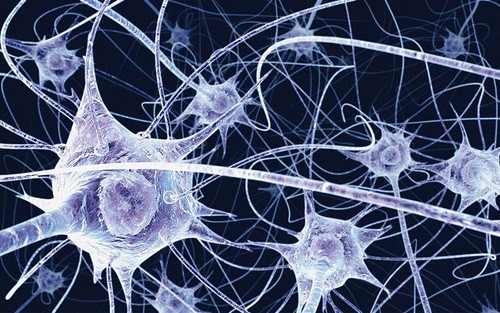
This is called neuro linguistic programming (NLP) and is thus possible through the power of our own minds making neurological connections. It is actually quite simple. Whatever you give attention or energy to becomes bigger. So when you focus on something negative, you will only experience it worse and at the same time you will create new neurological connections in your brain that will only make the pattern stronger. So you are only feeding the emotion! This is how your identity is formed but this may be an identity you don't like at all.
It is very meaningful to realise, that people with their way of thinking and their beliefs, have a huge influence on how they behave and how they feel.
So you don't have to feel the way you do. At least, if you find it disturbing the way you feel. You can look at something in a different way. When you train this a few times you will notice that it becomes easier for you. Your brain then starts creating new neurology. It all depends on how you let your subconscious create the neurology. With your conscious brain you can influence this directly.
But the brain does not like change, which is why it is difficult at first to turn a negative pattern into a positive one. This is because the unconscious will keep trying to bring you back to the "old" way of doing things... the path of least resistance.
Movies on neuroplasticity and the power of our brain
Take a look at the page with interesting inspiring videos on neuroplasticity. See link below:
> Inspiring videos on neuroplasticity and the extraordinary power of our brain
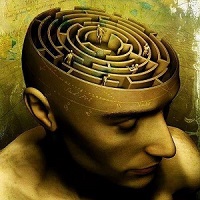
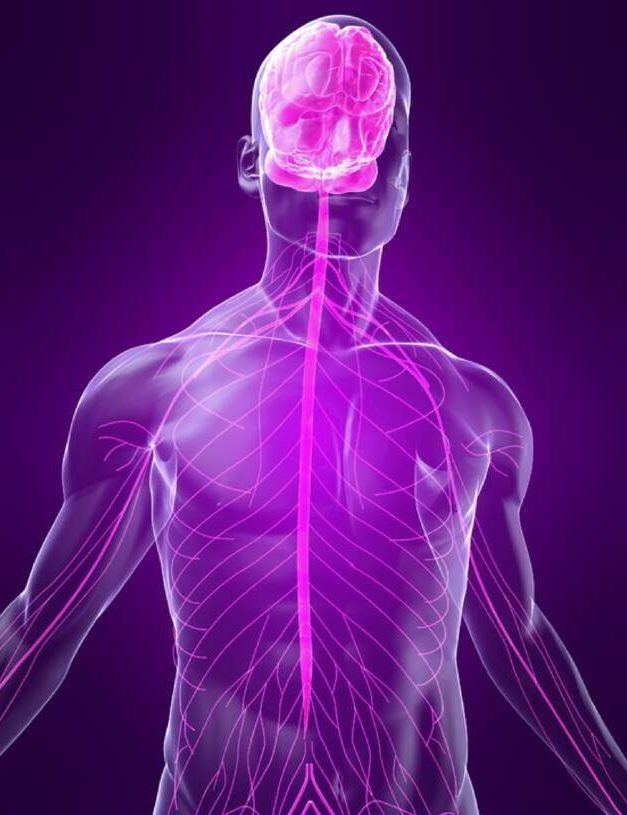
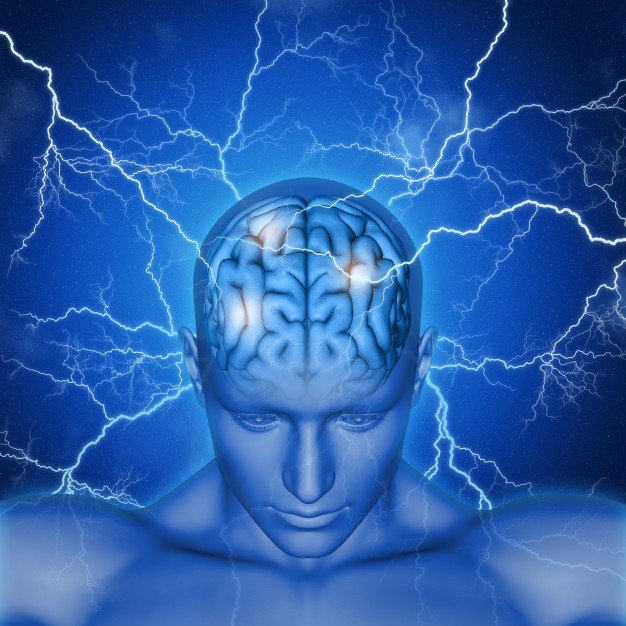




Read with great interest. Busy searching for my son now 23 who is completely stuck in his life. We read your posts with great interest! ☺️❤️
Wonderful article. It sums up exactly how I "thought" myself into a downward spiral several years ago. I can find a lot on the internet about neuroplasticity, and changing your personality and thoughts through new thoughts and experiences, through the new creation of connections sounds very logical. But when I search NLP on the internet, I read that it is generally accepted as pseudo-science. How can this be? What exactly do you mean by NLP and how could it help if it is this pseudo-science I read about on wikipedia? Your entire article apart from NLP sounds completely logical and I also firmly believe in that power of change (having already gotten myself out of that mild depression lately with new experiences and thoughts) but how can I make use of a science that is untrue?
Hi Peke, what he has brought to me is also incredible. With NLP you can really overcome a huge amount. It is nothing floating and without people doing it they use NLP every day. This is because the brain is plastic and still develops every day. Even in older people. It is a pity that it may not be given any attention in the mainstream but I can be very clear about that. In that industry it is totally irrelevant if people can heal themselves. People have to make money through endless therapies and preferably as many pills as possible. But real healing comes from within yourself and that is in its basis for very many things in your brain. This is not to say that it is psychological and therefore just between the ears. It's neurological connections that keep themselves instant if you don't break it. But yes, again, healthy people who know their own strength do not make money. So not interesting to them. That's how it is, unfortunately.
But NLP, then, is neuro linguistic programming. It is nothing scary or floaty. All people unconsciously use it every day without knowing it. This is a quality of the brain so that it can continuously adapt to life throughout life. But for many people, the brain develops in a negative way. This is because it happens mostly unconsciously. For the brain, it doesn't matter whether it develops negatively or positively. If it is negative, you will potentially suffer all kinds of unpleasant issues like anxiety, gloom, tension, perfectionism and so on throughout your life.
What it comes down to is having good new experiences. However, you don't have to sit and wait for these to happen one day in your life. As soon as you notice your brain getting into a negative pattern again, you can stop it. This is different from running away from it by just ignoring it. You can consciously stop it in your mind and immediately visualise a beautiful situation where you do feel strong. Or if you do it briefly stop it and get on with your activities. This is it very briefly. It is incredibly powerful and this is how you change your brain by training it to be the brain you want it to be.
By the way, this is something many successful people often already do unconsciously without even knowing that what they are doing is NLP.
So the great thing is actually that people have a choice. You really can actively change your brain and start feeling better than ever. But yes, the pharma mafia has no use for that.
Greetings Jochem
Hey Jochem,
what a great piece! I wish everyone with AD(H)D realised that you can be the boss of your own thoughts. Too many AD(H)D'ers I know have resigned themselves to the drawbacks and limitations of the disorder and think it will never change and that is such a shame! I also started working with NLP and this has changed a lot for me in a positive way. I can recommend it to everyone.
Keep up the good work :)
Totally agree Rinske. Nice to hear too that NLP helped you. Thanks for your response. Greetings Jochem.
Hello Jochem,
I want to thank you very much for creating this site. I see a very well-organised and many times more comprehensive clear site than I have been able to find otherwise. Again; my thanks for all the information collected and clearly explained. I personally notice how much effort it always takes me to gather information on a certain topic and always get extremely annoyed by the fact that most sites know how to describe things so concisely that you actually still know almost nothing. And somehow I also always get lost on the internet. Or I end up on a completely different subject via e.g. the links and forget what I was doing. And that way I very often miss the target. In that sea of information, I lose focus and get bogged down in nonsense. Away precious time. Does this indeed fit with ADD? I myself suspect that I have ADD. Or am I ADD at the moment because I can't handle it yet? It feels that way by now. I have a lot of trouble separating main issues from side issues. I start something full of enthusiasm and then something grows over my head very quickly. I already have it with cleaning my house. Often, while vacuuming, I run into so many other things that I try to dust everything perfectly at the same time, use a wet cloth here and there, pass by the toilet and start scrubbing it only to discover that I need a dry cloth or the like, and then the mess in the scullery suddenly bothers me as well and I realise that I'd better start reorganising the shelves there, only to end up running out of time and not having finished anything. Even after that time, I am not even able to bring all the stuff back to where I got it from. I get really (am) very tired of myself then. It's been like this all my life, and there are times when I manage to organise things better so that even sometimes things go smoothly, but most of the time I am behind the times. Being late for anything is also so recognisable. I am also very often late. Furthermore, I am also hypersensitive and in a far from perfect marriage with two adolescents growing up, my emotions go from strength to strength. I feel like I am constantly switching from one emotion to another. I was and am very sensitive to addictions. Fortunately not for everything but for a lot of things and that has caused me a lot of misery in my life. Even being addicted to the wrong men is a possibility. I used to always pick the wrong boyfriends. Often guys with problems. With my husband too, I had a wrong past. Also, I suffer from the winter blues by default every year. And those periods can be long and intense with periods of complete lethargy for me. Not even energy or desire to do anything. Seeing the days I live and exist as a prolonged punishment and wishing it would end. During the periods when things are better again, I can't seriously imagine these thoughts but during winter, they are very emphatic and almost impossible to dispel. I am a real people person who normally feels best among people. That was also the most enjoyable part of my school and work periods. I haven't worked for almost 20 years now and also live on a quiet side of a village and even that eats up energy. In any case, the silence and loneliness don't do me much good. But there are definitely periods like in summer when I feel very happy with the house and the place. But then there is always something to talk about behind the house as well since there are many dog owners walking around and we also have a dog. So then I do get my social contacts.
Now I have to read through all the pages and links again at my leisure instead of picking out snippets that caught my eye. Hence my thanks to you Jochem. I have the idea that I now don't spend, I don't know how much, time looking for information. You have picked out a lot and described it very clearly and comprehensively. By the way, I myself have yet to get confirmation from a psychologist that I am indeed an ADDer. But in my opinion, there is no other way.
Dear Aly. I think it sucks to be all over the place. But it also shows that you are intelligent. But don't get involved in. material things either. Blame your partners yes because it users. But you ran ahead. You don't virtue and you blame people who don't deserve it.
Dear jochem
Very interesting, I joined this site for my son and find lots of tips and information for him and myself. Super!
Great collection on how to change one's own behaviour though..... my words fail me how one and other now falls into place of everything I feel, know and do in my life (now 50 years old).
It feels very logical this plasticity of the subconscious and the appropriate tool NLP.
This all falls together as appropriate parts. Who wrote this ?
Hi Alphon, thank you, thank you, thank you! :) I (Jochem) wrote this. Nice that you find it useful. NLP can indeed really help you a lot.